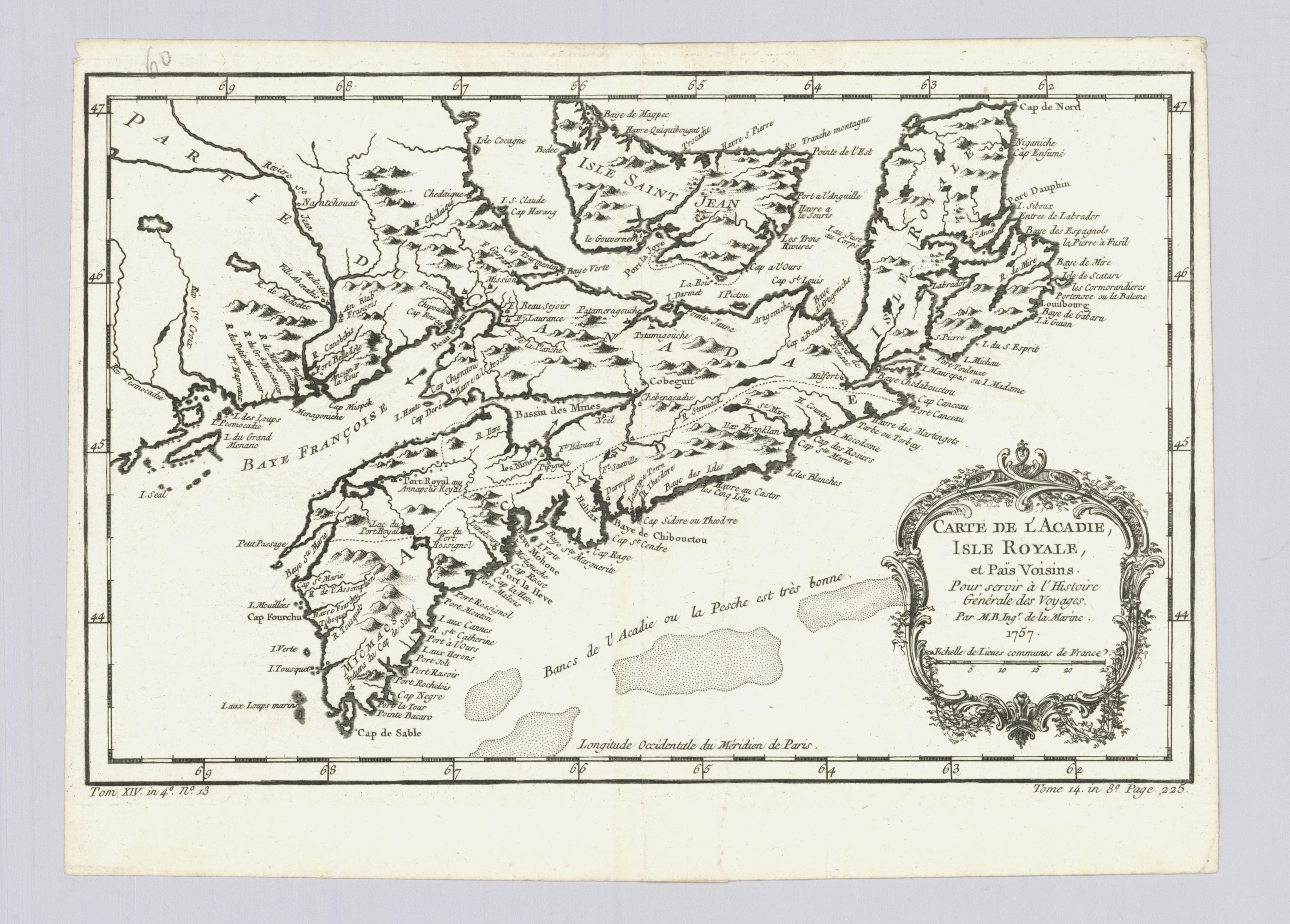Ancestor: Joseph Babin
Descendent: Peter B.
My 6th great-grandfather was named Joseph Babin. He was born in 1710 in the village of Pisiguit in Acadia, now known as Nova Scotia. He and his wife Anne Marie, nee Landry, had 6 children. They worked a small farm with various crops and farm animals. The Babins lived in co-operation with other families in the village to maintain dykes to keep back the sea and other mutually needed projects. They had a friendly, symbiotic relationship with local Native Americans, the Miꞌkmaq.
But the Acadians lived in perilous times. As French Catholics emigrating from France in the 17th century, Acadians had to manage a delicate balance between French and English political interests. Acadia was claimed by both France and England, but the occupants were treated with indifference by France and hostility by England. In 1755, Joseph Babin and his family, along with thousands of other Acadian households, were forcefully removed by English authorities. Their properties were burned and they were crammed into waiting ships. Acadians were transported to various English colonies in North America. A thriving society of more than 10,000 people was systematically eradicated in a matter of weeks. The objective was to neutralize a potential threat and repopulate with friendly, English-speaking subjects. This was begun in short order.
Joseph Babin and his family were fortunately not separated, unlike many families. But they landed in Oxford, Maryland, with just the shirts on their respective backs.
The Maryland colonists did not take kindly to this intrusion by poor, French-speaking Papists into their daily lives. The Babins had no resources, but a willingness to work, but that was hard to obtain. They had to endure years of deprivation and social isolation.
Joseph and Anne Marie Babin died in 1763. That same year, the Treaty of Paris was signed by England and France. As part of the settlement, England acquired Louisiana east of the Mississippi River. This opened up a new refuge for displaced Acadians. Four of the Babin children went to Louisiana. My 5th great-grandmother, nee Cecile Bois, made it to New Brunswick, where she gave birth to Joseph Olivier Babin, who eventually settled in Yarmouth, Nova Scotia.
The story of the English decimation of Acadian society is not much discussed in history. Yet, it is just as compelling as the American Revolution. Something just as tragic could have befallen the 13 colonies if those colonists had not fought for their rights. Acadians were so determined to live in peace and harmony in their corner of the world that they were essentially blind-sided by England and destroyed.
My forefathers lived in Nova Scotia until about 1900. Peter Babine, my grandfather, was born in Massachusetts in 1894. But I will always feel a strong connection to Acadia. I am proud that my ancestors built and lived in a society where people lived in symbiotic co-operation with each other and with Native Americans as well. Such a development is so rare in recent recorded history.

